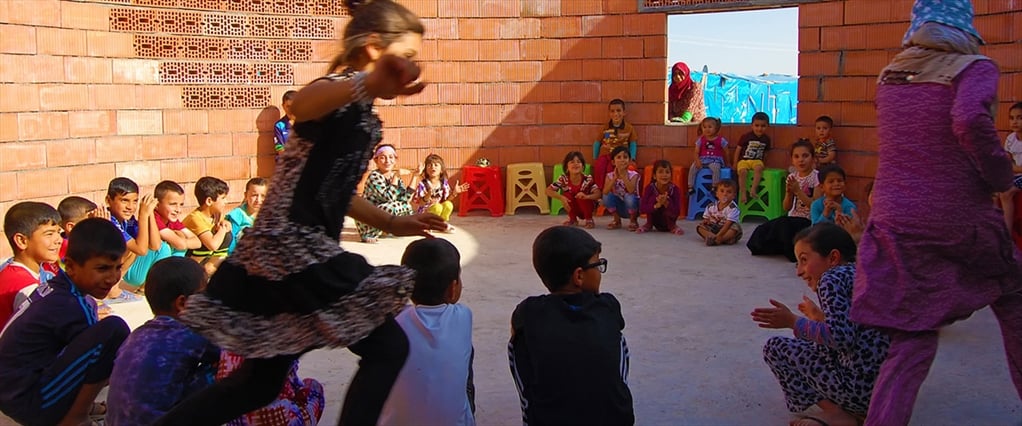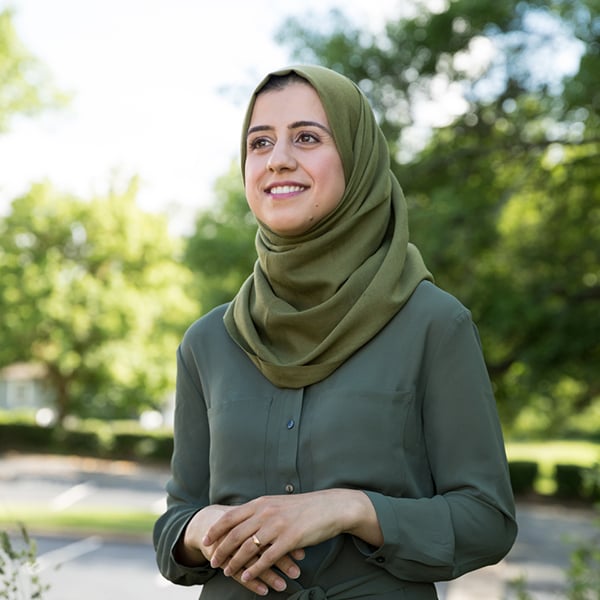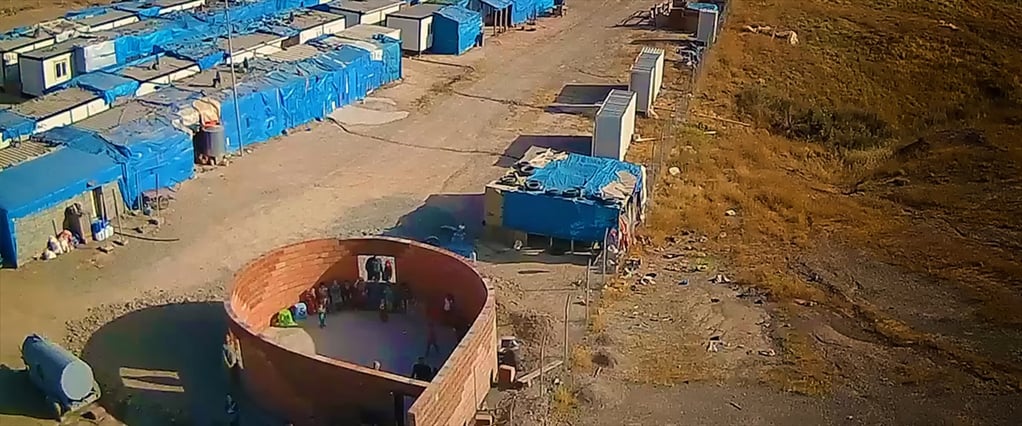Helping Strangers in a Strange Land
By: Melissa Fralick | Categories: Alumni Achievements

For Soleen Karim, Arch 12, M Arch 15, M CRP 15, the refugee crisis is more than just news from the other side of the world. She’s drawing upon her personal experiences and Georgia Tech education to help make life better for refugee communities.
Together with her sister, Kurdeen Karim, she founded Design4Refugees Corp. to provide for the needs of people living in refugee camps in their family’s native Iraqi-Kurdistan, as well as those already working to rebuild their lives in America.
“We had a desire to apply the skills we had attained at work and in school to help refugees,” Karim says. “We felt a very close connection to that issue being refugees ourselves.”
In 1988, Karim’s family fled Iraq in the time leading up to the Gulf War. Karim was born at a refugee camp in Iran, and then moved again to Pakistan for eight years until the family was granted asylum and resettled in Clarkston, Ga.

Soon after beginning the organization, Karim says she realized that the idea of mass-produced shelters felt dehumanizing to the people living in the camps, and she and her sister decided to go in a different direction. First, she made a connection with a small refugee camp in Chamchamal, in the Kurdish region of Iraq. Then in May 2016, Karim visited the refugee camp, getting to know the 48 families who lived there, to learn first-hand what would improve their quality of life.
They identified a space and “literally started drawing in the sand,” Karim says.
From there, a community center began to take shape through a process of collaborative design and labor. With a modest crowdfunding budget of $4,000, everyone contributed.
“It wasn’t me watching and directing—it was me in the dirt with them laying brick,” Karim says. “From that, they developed a trust and connection with us.”
Though modest, the multipurpose space provided much-needed shade and shelter from the elements.
“It’s so hot outside in the summer. We used some passive cooling and heating strategies so they could play basketball and soccer inside,” Karim says.
The good news is that the facility did not need to be used for long.
The refugees in that particular camp were able to return to their homes in the city of Mosul, Iraq, which was liberated in July 2017 after three years under the control of the Islamic State.
Though this story had a happy ending, there are still many more refugees living in poor conditions. “There are still camps with thousands of people in Iraqi Kurdistan,” Karim says.
Though she’d like to continue her volunteer building work with refugees in Iraq, political turmoil in the area, coupled with a lack of available funding for refugee organizations, has made it difficult at this point.
She hopes that Design4Refugees will one day again be able to provide more safe places for children to learn and play and just be kids—as much as possible in a refugee camp. “In the future, we’d like to focus on alleviating problems experienced by kids the camps,” Karim says.

Currently, Design4Refugees is focusing its efforts on the needs of refugees who have been resettled in Clarkston.The small town just east of Atlanta is home to refugees from all over the world. The U.S. refugee asylum program designated the town as a good location for refugee resettlement in the 1990s, and since then, it’s become a first stop for many families looking to rebuild their lives in America.
Design4Refugees’ program focuses on providing computer training and English language lessons for women over age 17. Karim’s sister, Kurdeen, who works in the information security field, is spearheading the technology aspect of the mentorship program.
By teaching refugee women about computers, they hope to make them candidates for better jobs, as well as giving them skills to use in their daily lives, like filling out forms online or assisting their children with homework.
The program is small, to allow for personal connections that help them assist each woman individually.
“We go to their house and interact more personally, learn their story, and engage with them more than what’s offered in the class,” Karim says. “By visiting their residence, we can understand what they’re struggling with beyond what the program offers.”
For example, Karim says one woman in the class was living in an apartment without any furniture. Another family of seven is living in a two-bedroom apartment. They were able to help by furnishing the apartment and providing information on Habitat for Humanity for housing assistance.
Karim says for busy women with children who are working and trying to get settled in a foreign country, making time to attend a class can be difficult. So Design4Refugees tries to remove as many barriers as they can.
“We accommodate their kids and have them come to the class with us so the mothers can actually attend,” Karim says. “Transportation is also a barrier. A lot of them don’t know how to drive. So by me picking them up, it ensures they get to the class.”
Karim was 9 years old when her own family moved to Clarkston.
She says her mother was a teacher in Iraq, but worked long hours at a factory when they moved. As she and her sister got older, they were able to teach their mother how to use a computer and have more conversations in English.
“My mom was in that situation, and I remember how hard she worked when we came to the U.S.,” Karim says. “It was pretty difficult for her, and I can definitely relate to these women.”


